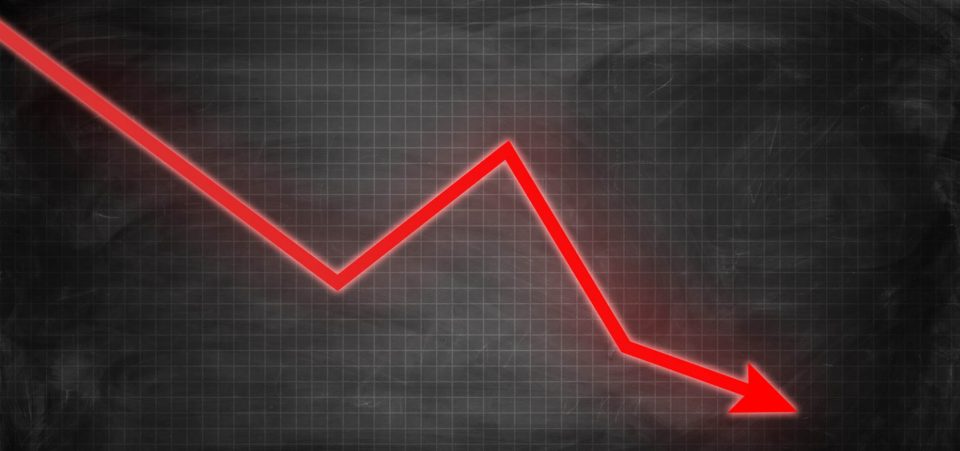Stock Market Crash Odds Increasing with North Korea And Debt Ceiling Crisis Looming
Yeah, I know. We, pundits, have been talking about the possibility of a stock market crash for a while (in Lombardi Letter‘s case, since last September). But the odds keep growing, owing to several important factors coming together. The fall promises to yield some harrowing market moves.
First, we have the impending debt ceiling debacles cresting at September’s end. That’s when the fiscal year end arrives and the debt ceiling must be raised in order for Uncle Sam to pay its bills. A failure to do so could necessitate the U.S. government to prioritize payments to creditors and shut down some branches of government. Tens of thousands of federal employees may not get paid on time; the U.S. credit rating may be threatened; parks and non-essential services could get shut down; so many repercussions to average Americans.
And the thing is, Congress is completely dysfunctional. Reports abound of Trump’s salty relationship with Senate Majority Leader Mitch McConnell. He’s not exactly chummy with House Leader Paul Ryan either. This puts the whole legislative agenda in question. To top if off, Trump will require at least 60 Senate votes to pass any debt ceiling bill that emanates from the House. As Republicans only sit 52 Senators, eight Democrats will have to come on board. That’s extremely problematic when the Democrats stated meme is “resistance.”
Bottom line: A debt ceiling raise is no guarantee this time. Powerful, opposing forces might actually use a debt ceiling crisis to “prove” Trump is unfit to govern (in this author’s humble opinion). The resulting fallout from a credit downgrade and political chaos could push the S&P 500 index down five percent to 10% by itself. It’s unclear how far the rabbit hole this issue could go (although it will probably be resolved quickly—somehow).
On a macro level, North Korea could cause a coming market correction. Just when it looked like the rhetoric was dying down, Kim Jong-un racked the tension back up.
On August 28, the despotic leader ordered the firing of a ballistic missile over northern Japanese territory. It proceeded to land in the sea, but the flight path was considered provocative. The test immediately drew condemnation from the U.S. and Japan, which had struck a more conciliatory tone of late. Trump renewed his threat that “all options were on the table.” (Source: “U.N. condemns ‘outrageous’ North Korea missile launch, Pyongyang says more to come,” Reuters, August 29, 2017.)
If war breaks out on the Korean Peninsula, it won’t help the U.S. economy (outside of defense spending). It could especially impact trade with China and shipping routes in the Sea of Japan. The U.S. is dependent on exports from the region, and the last thing they need is a trade war catalyst with China. This speaks nothing of the many lives and immeasurable environmental damage at risk.
September 2017 also sees the Federal Reserve embarking on a quest to reduce its balance sheet. The plan is to allow $5.0 billion/month in Treasuries to retire while refraining from buying new ones. By the end of 2018, it could be $50.0 billion/month. In other words, the exact opposite of quantitative easing, which has undoubtedly juiced asset prices. This is quite problematic for a stock market riding on the coattails of historic amounts of liquidity.
I don’t expect this latter issue to cause turmoil right away, but the effects will compound. Where liquidity is existing in the markets, margin debt will follow. We find it quite unbelievable that “private” demand will pick up the slack. We’re probably nine to 18 months away from recession, and Joe Public isn’t buying stocks with a collective CAPE ratio of 30.
These three issues are but several stalking the market. If they all start clicking at the same time, trouble could ensue.
Stock Market Forecast for Next Three Months
We can’t conclusively predict a stock market crash coming. Nobody can. If anybody claims otherwise, run away. But we can say the conditions are as ripe as we’ve seen them since 2007. That’s how strong our conviction is.
Another disclaimer: the large variance in our predictions is dependent upon how many of these negative catalysts come to pass. For example, North Korea could be a giant “nothing burger,” or it could portend something truly historic. Debt ceiling negotiations could turn into a debacle, or the debt ceiling could be raised a week before the deadline. Nobody really knows how these volatile events will come to pass. All we can say with certainty is that heavy-duty potential for serious consequences exists in the here and now.
That said, our stock market crash predictions take into account a probable government shutdown resulting for a late debt ceiling raise (odds over 50%). This will take the S&P 500 down a quick five percent to 10% by the end of September (2201 to 2323 range) and gold north of $1,360/oz (four-year highs).
Although we are not forecasting it to unfold, should North Korea explode into war, add another five percent to 10% potential declines.
The next three months should make investors nervous indeed.







